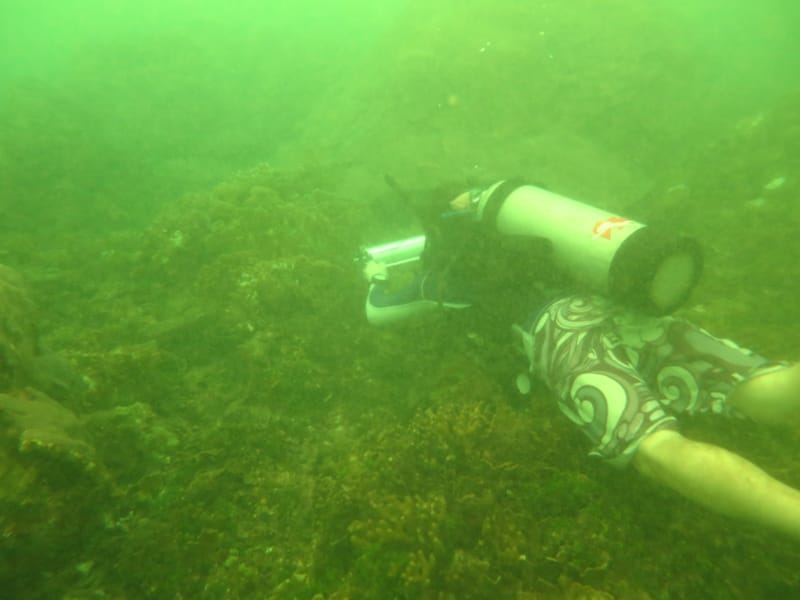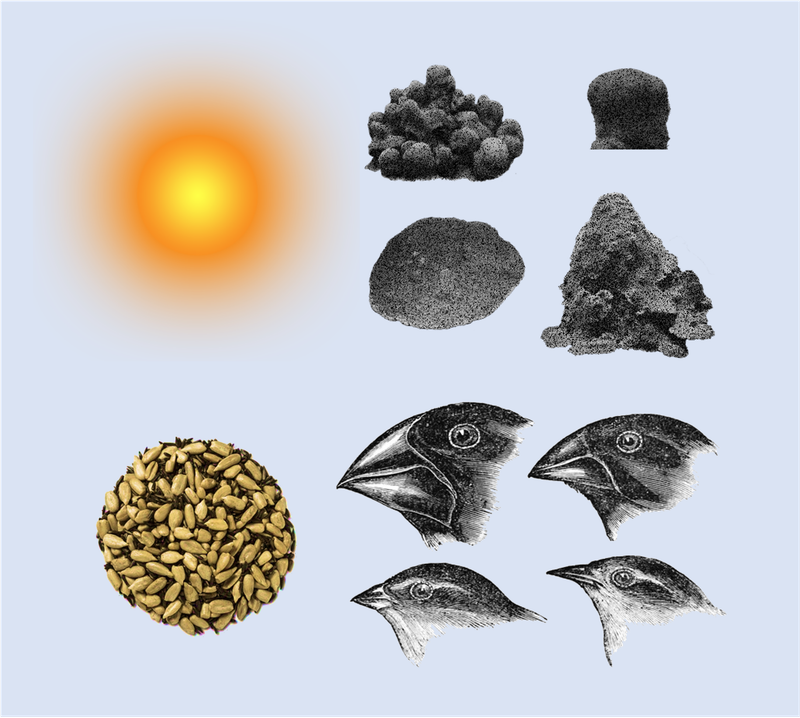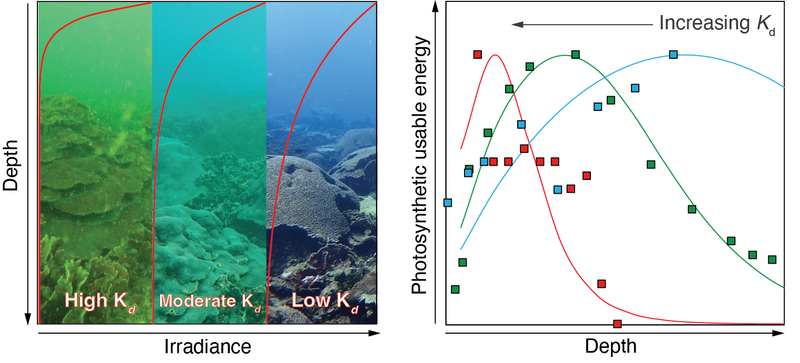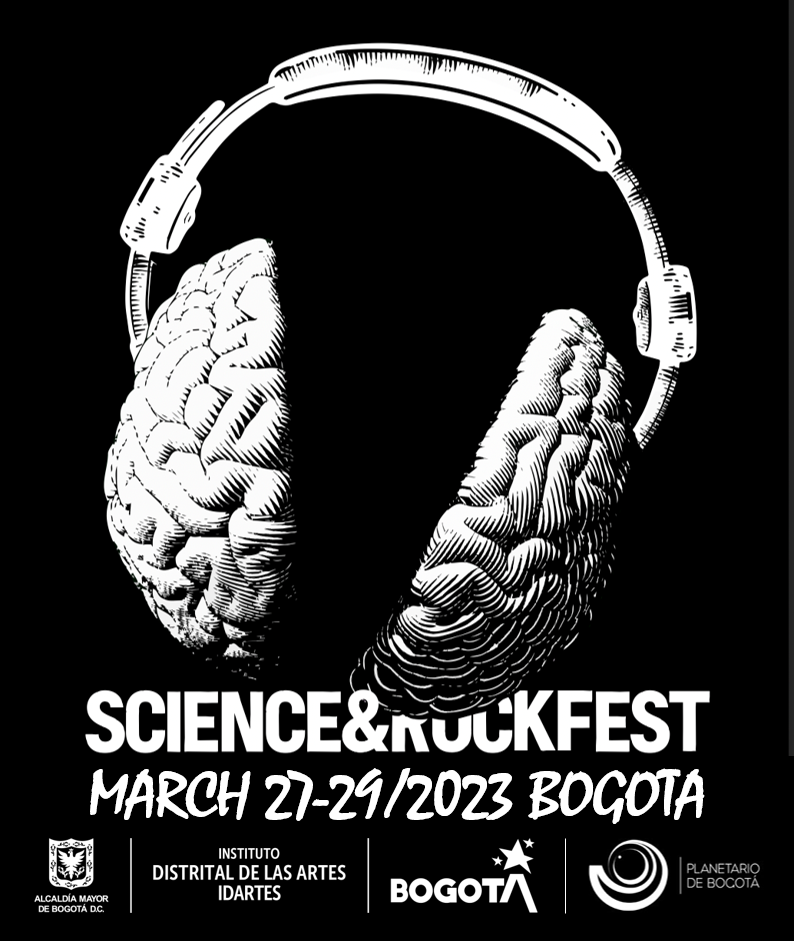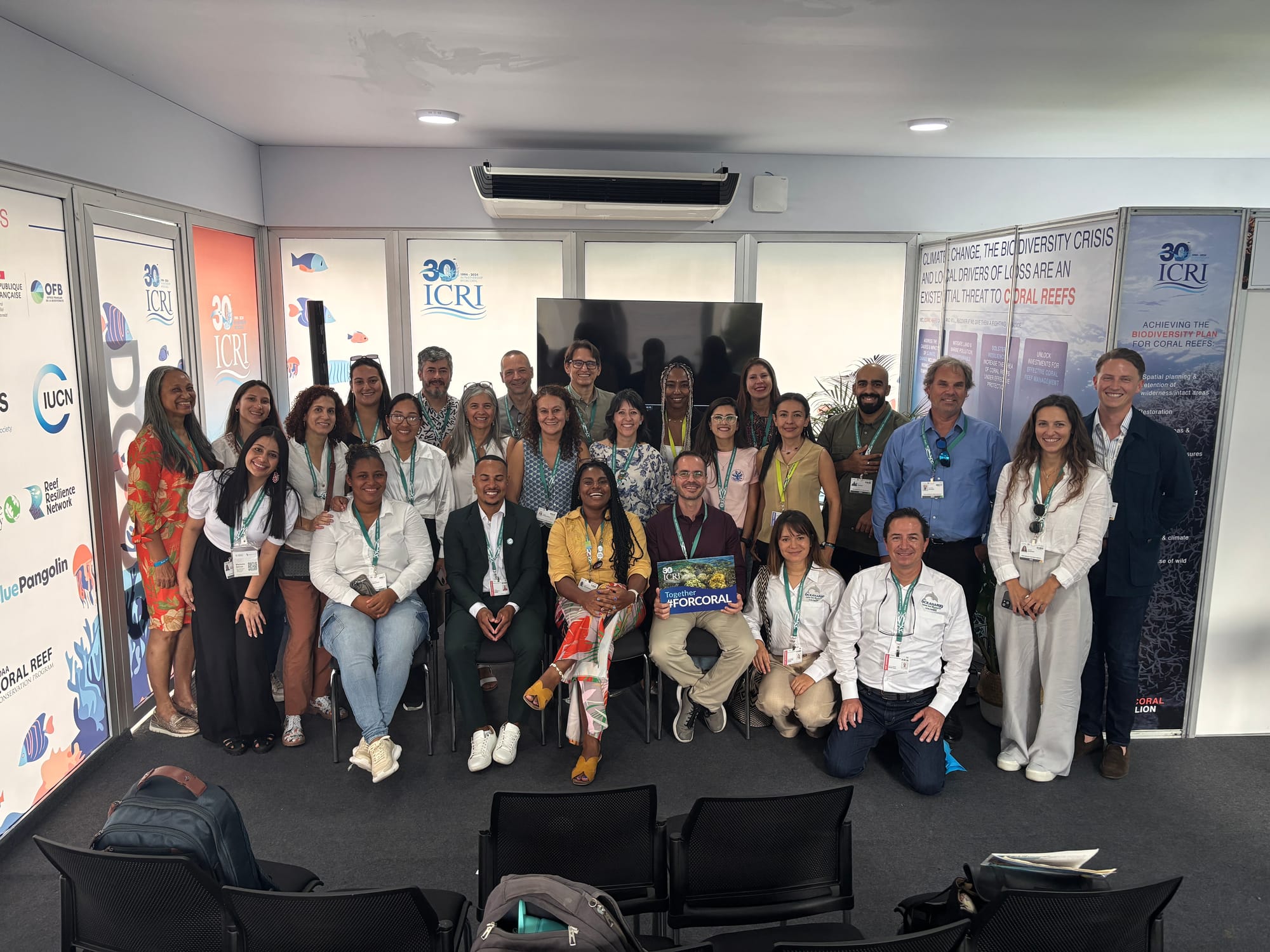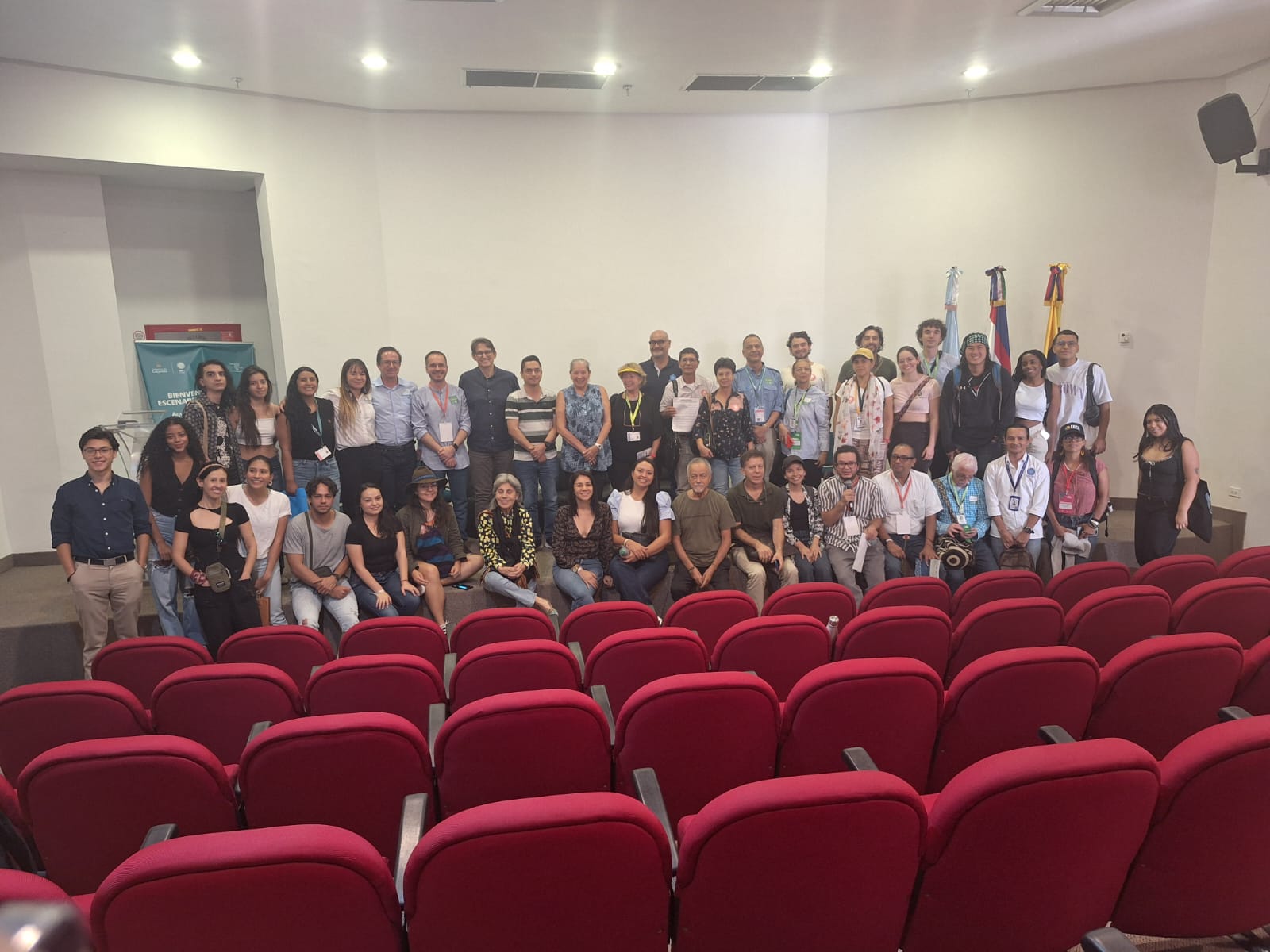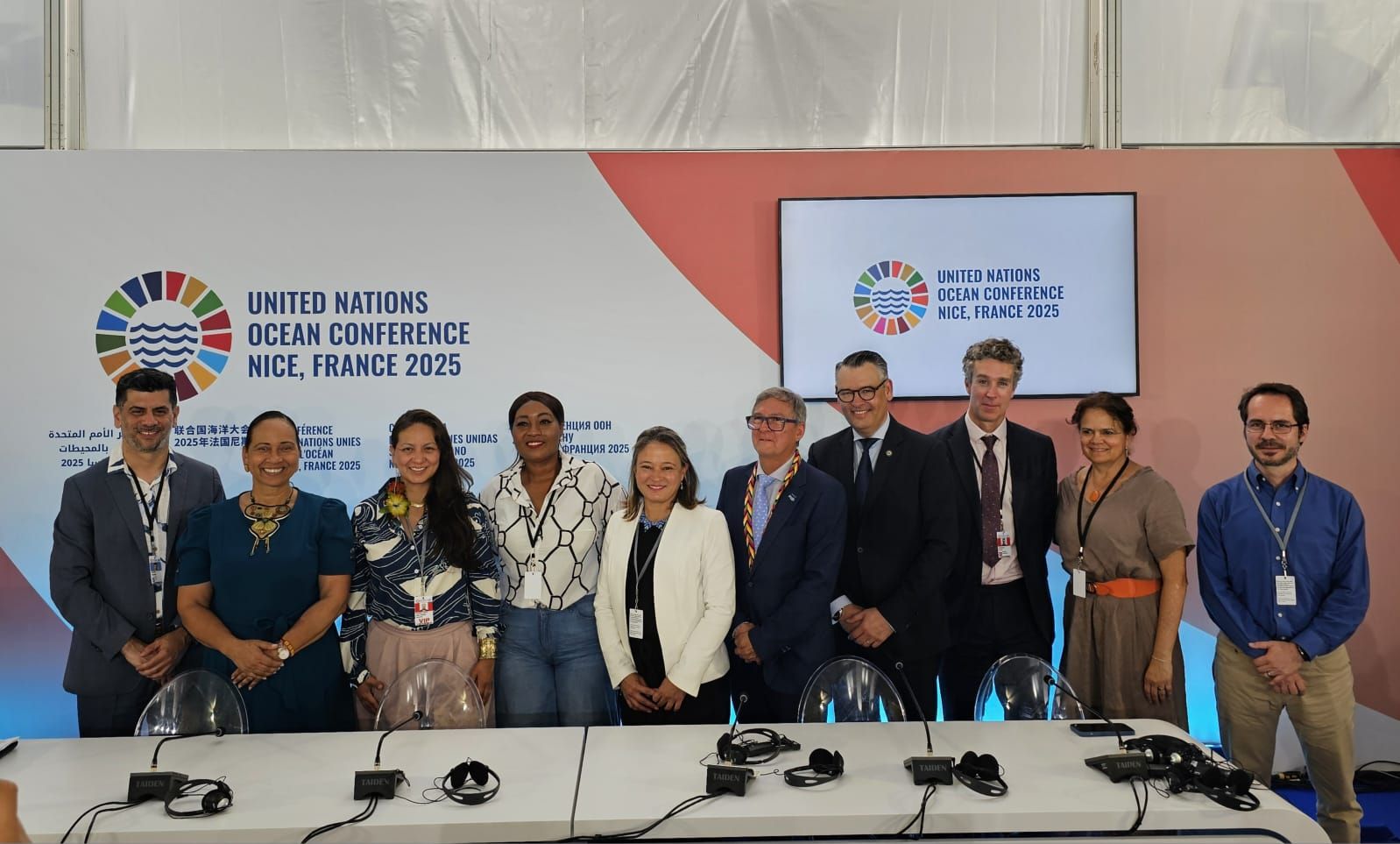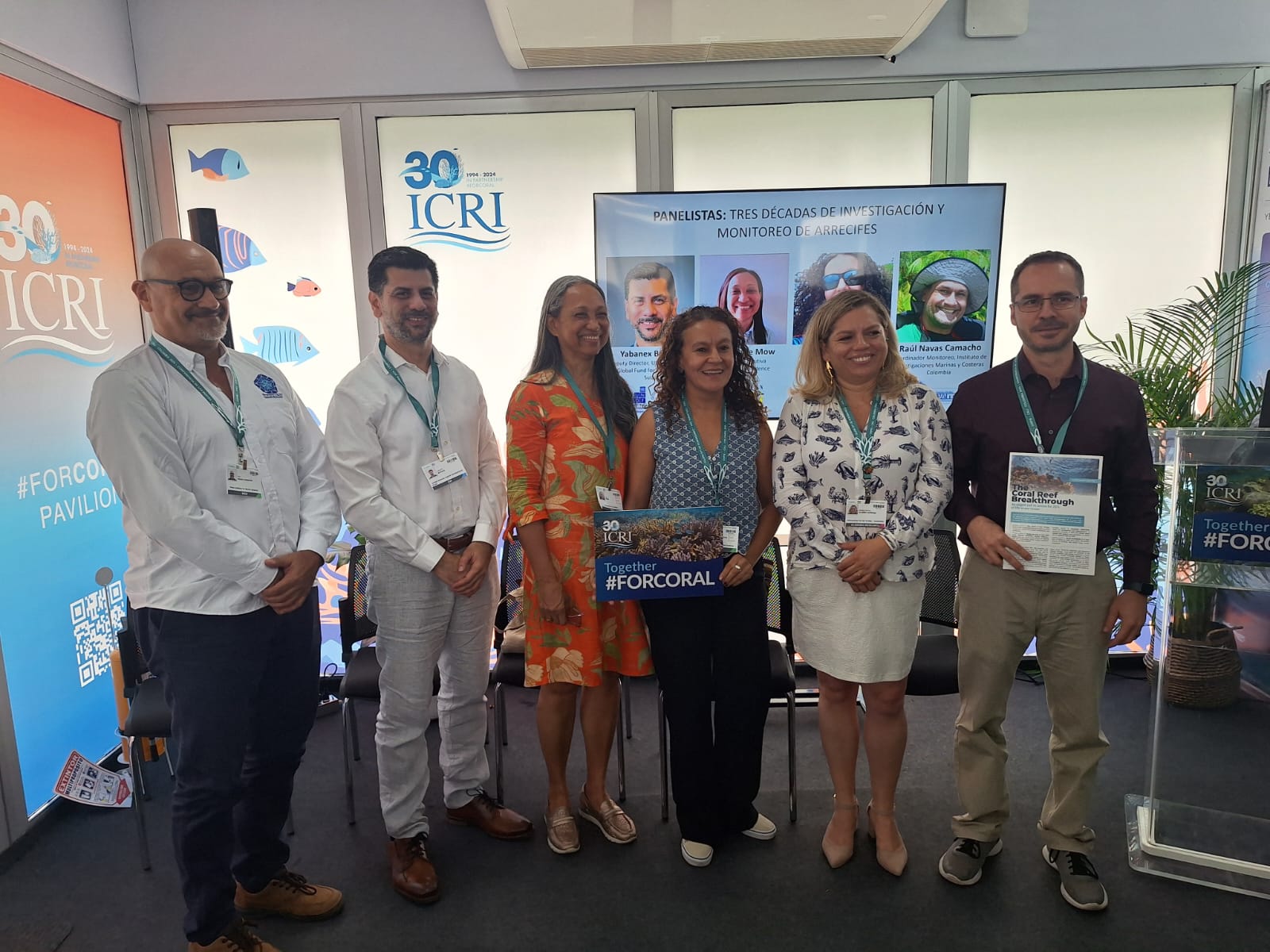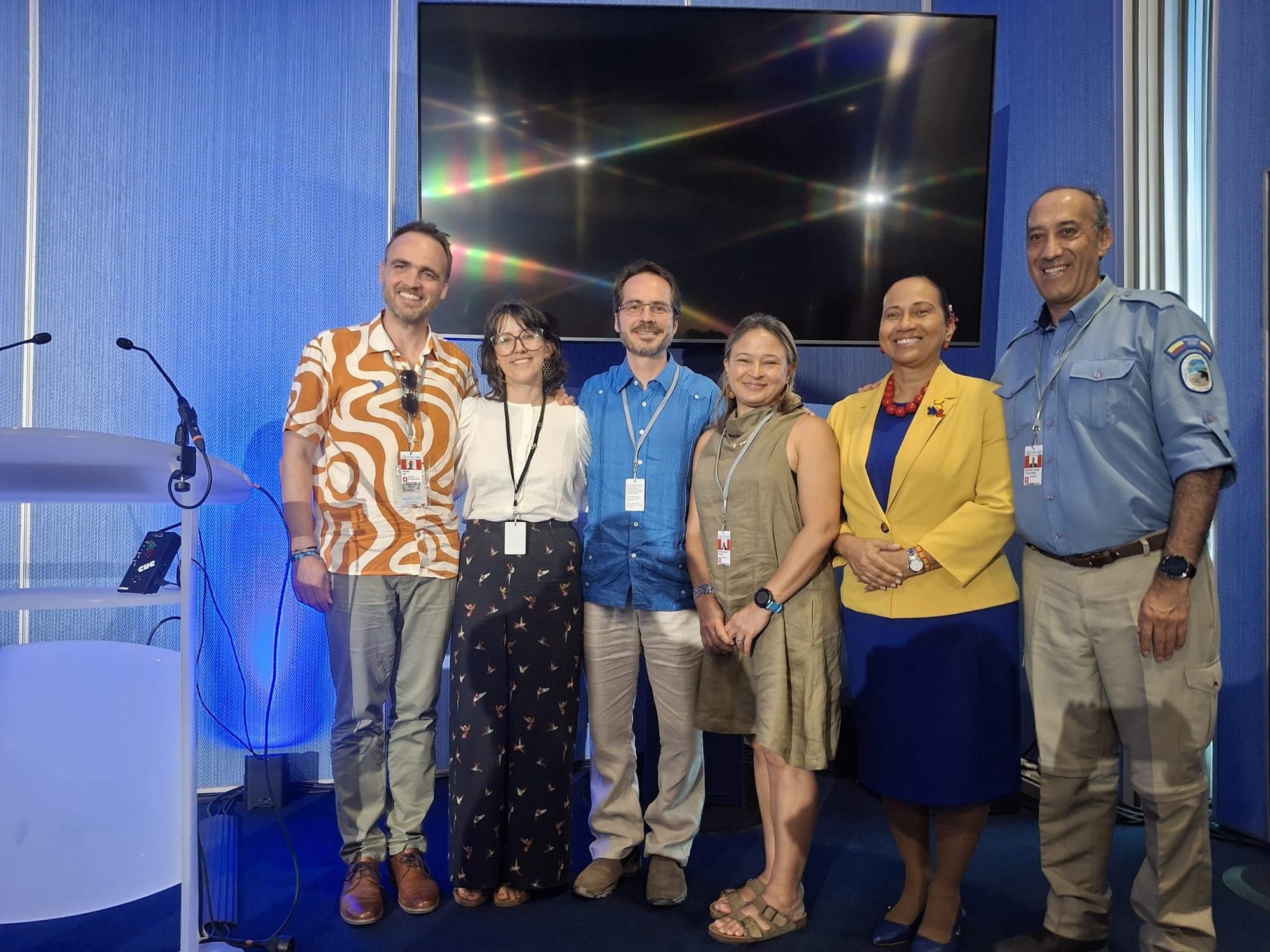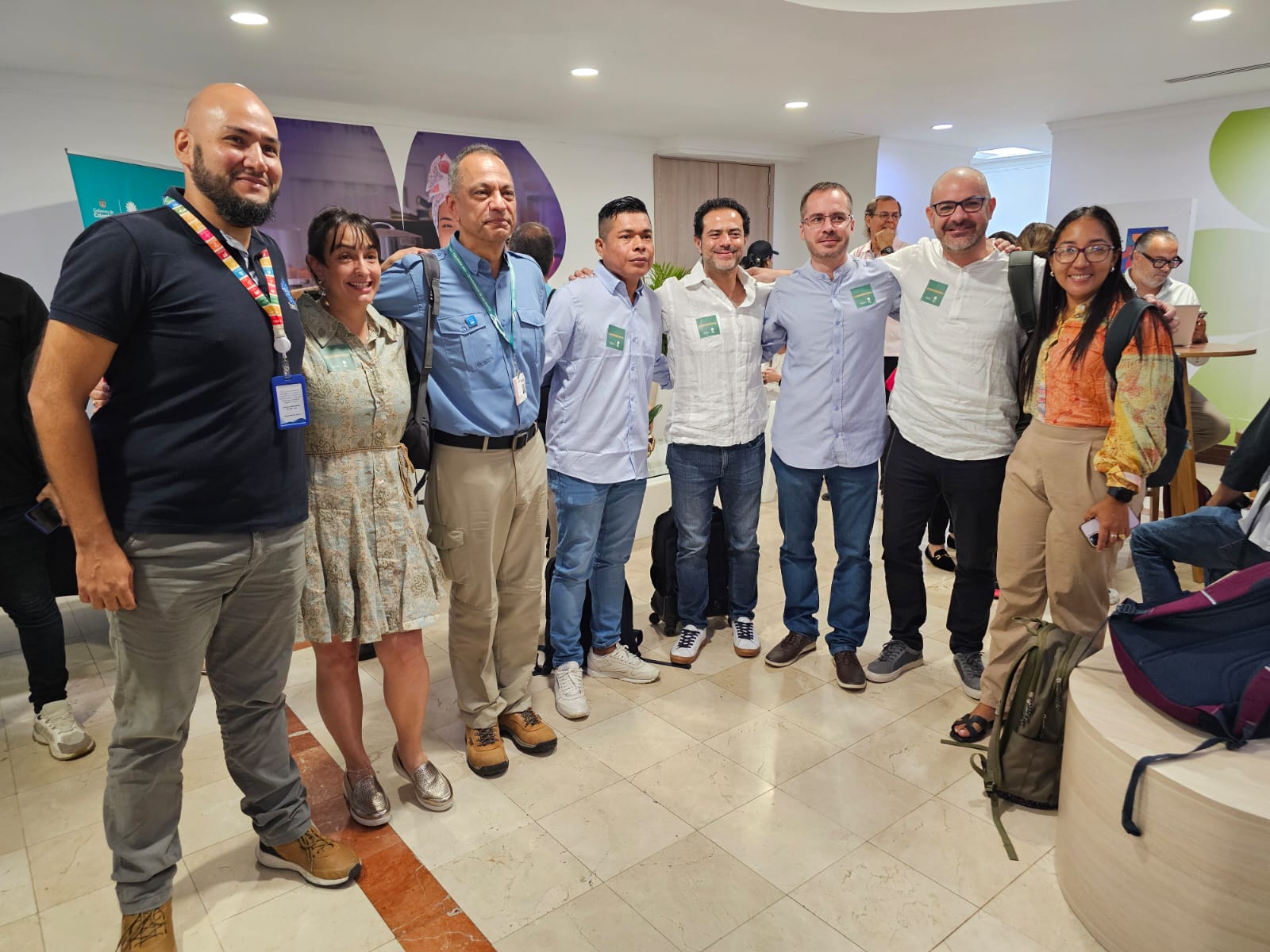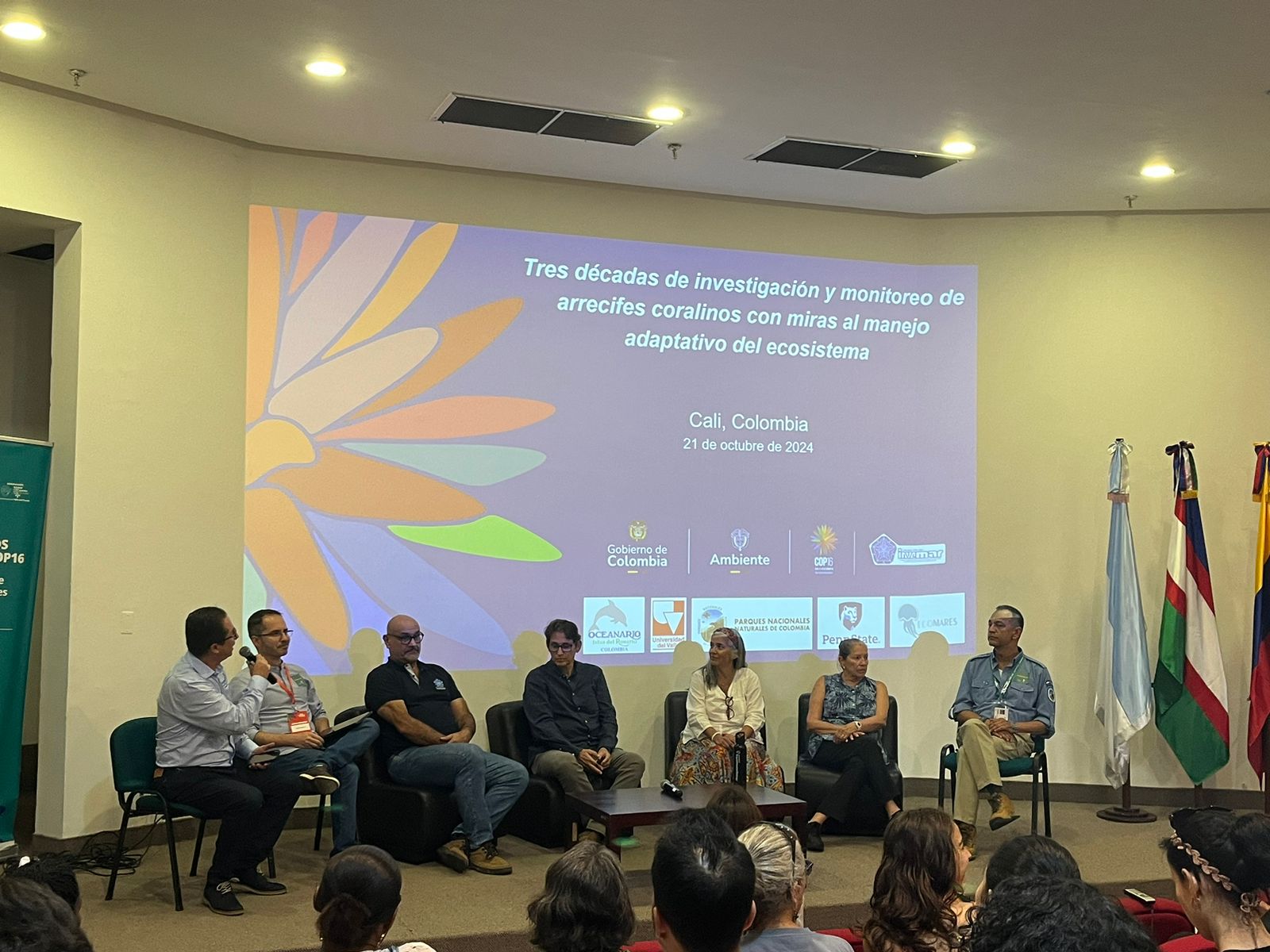The Pennsylvania State University, United States. 2016-2022
Read MoreTomás López-Londoño, Ph.D.
Connecting Science, Policy, and People to Conserve Coral Reefs and Ocean Health
About me
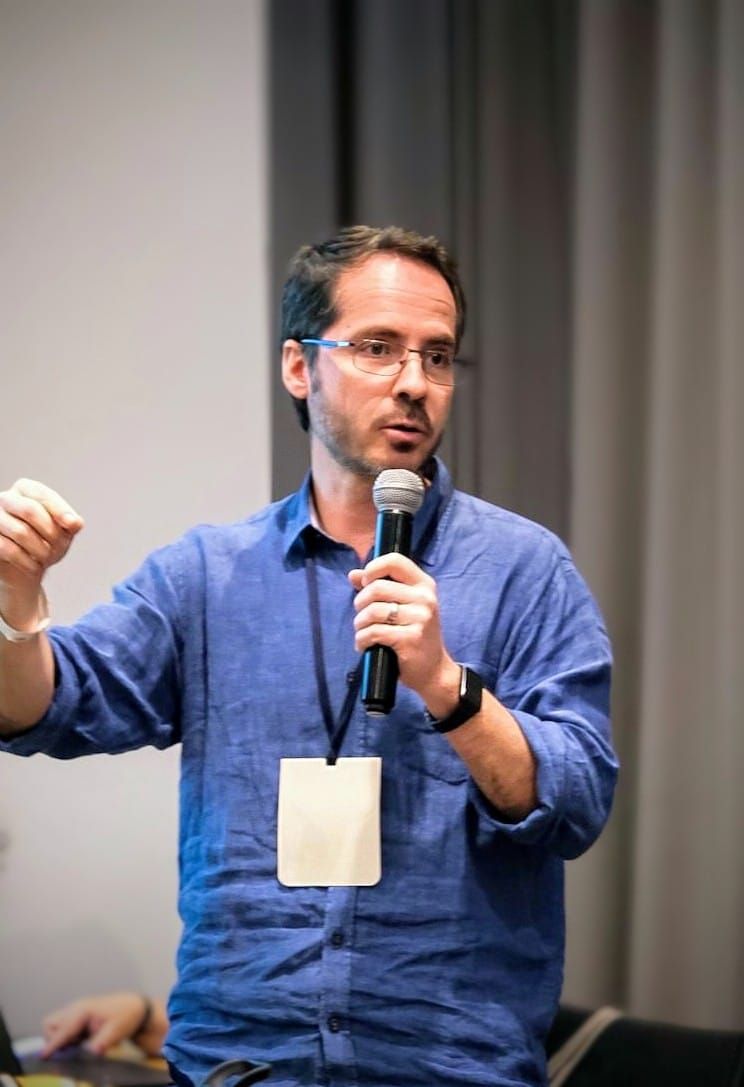
Education
Research and Policy Impact
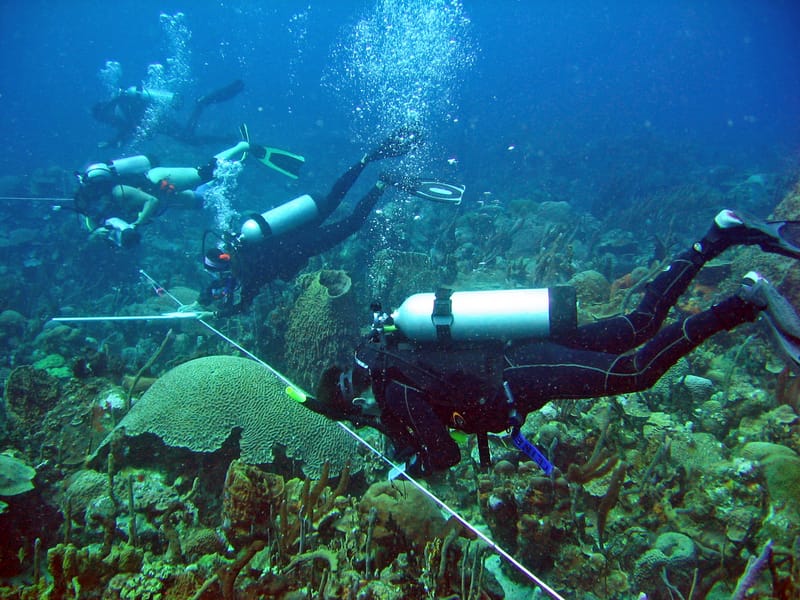
Coral Reef Science & Restoration
My research explores the ecological and physiological foundations of coral reef resilience, with a focus on coral photobiology, symbiosis, and environmental adaptation. I study how tropical corals respond to light availability, water quality, and habitat structure across biological scales—from individual colonies to populations and communities. By combining bio-optical modeling, fieldwork, and laboratory experimentation, I investigate the drivers of niche partitioning, biodiversity patterns, and coral reef degradation. This scientific foundation directly informs the design of evidence-based restoration strategies, including Colombia’s National Coral Reef Restoration Program (PNRACC), where I help bridge ecological science, public policy, and community-led action to support the recovery of coral reef ecosystems.
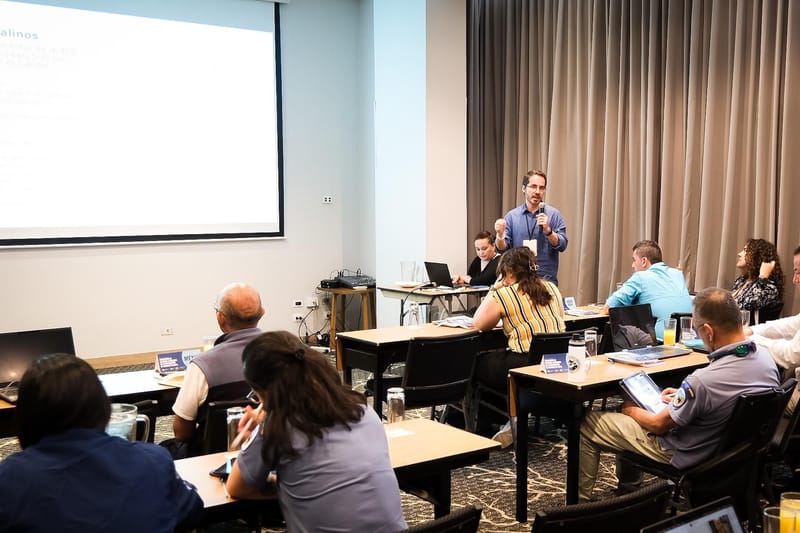
Science–Policy Interface
I work at the intersection of science and environmental governance, translating research on coral reef ecology into actionable policies and technical guidance. As a technical advisor to Colombia’s Ministry of Environment, I contribute to national restoration planning, inter-institutional coordination, and the development of protocols to address emerging threats such as stony coral tissue loss disease (SCTLD). My work includes the synthesis of scientific evidence to inform decision-making, the design of policy instruments grounded in ecological function, and active participation in multi-stakeholder platforms that shape marine conservation strategies at the national and regional levels.

International Engagement
I actively participate in international cooperation and ocean diplomacy, representing Colombia in global forums focused on marine conservation and climate action. My engagement spans multilateral platforms such as the UN Biodiversity Conference (COP16), the UN Ocean Conference (UNOC3), and the UN Framework Convention on Climate Change (UNFCCC). I have organized and moderated high-level panels on marine ecosystem conservation, restoration, governance, and sustainable blue economy strategies—fostering collaboration among governments, scientists, and civil society. These forums serve as platforms to promote inclusive, science-based solutions to global ocean challenges.
TEACHING
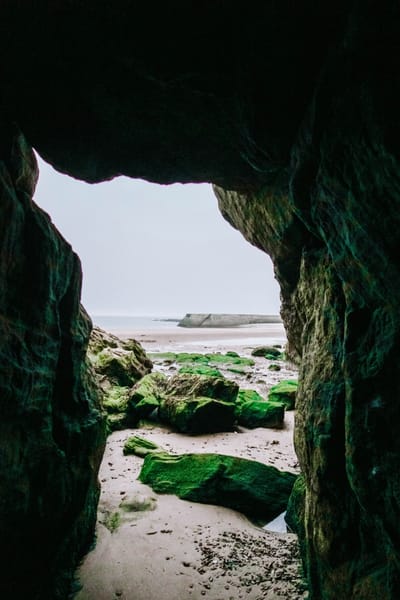
- Symbiosis (BIOL 406). Lecturer. Penn State University. In this advanced course, we delved into the significance of symbiotic interactions in nature and explored the unifying concepts that transcend various forms of symbiosis and other species interactions.
- Basic Concepts and Biodiversity (BIOL 110W). Lab TA. Penn State University. The primary focus in this course was to provide the students with the opportunity for a hands-on experience in the scientific process and to explore the incredible biological diversity of life on Earth.
- Population and Communities (BIOL 220W). Lab TA. Penn State University. Throughout this course, we introduced students to the fundamental principles, concepts, patterns, and processes that underpin the dynamics of populations, communities, and ecosystems.
- Light and Photosynthesis Workshop. Instructor. UNAM and Penn State University. For nearly two decades, this international workshop has explored the effects of light on photosynthesis, energy dynamics, and the adaptive strategies of marine organisms.
Projects
Explore the negative effects of water turbidity on the physiology and ecology of corals.
Read MoreStudy the importance of niche specialization on the origin and maintenance of corals diversity
Read MoreBio-optical models as an approach to describe the energy balance in corals at different levels of biological organization
Read MoreScenario where scientists and artists meet to teach, inspire and motivate future visionaries
Read MorePublications
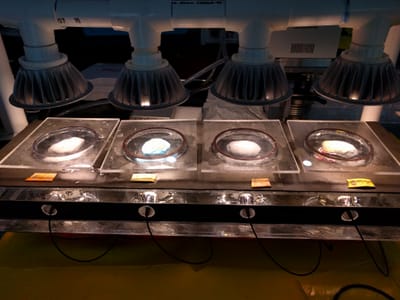
- López-Londoño T*, Howe C*, Townsend J, Galindo-Martínez CT, Roitman S, Badai A, Woodley C, Enríquez S, Kitano H, Smith T, Iglesias-Prieto R, Medina M, Prada C. 2024. Robustness trade-offs: an applied ecological approach to understand niche partitioning in sibling species of reef corals. [In Review].
- López-Londoño T, Enríquez S, Iglesias-Prieto R. 2024. Effects of surface geometry on light exposure, photoacclimation and photosynthetic energy acquisition in zooxanthellate corals. PLoS ONE. 19(1): e0295283. Link
- Shantz, AA, López-Londoño T, Gómez-Campo K, Iglesias-Prieto R, Medina M. 2024. Reassessing the role of herbivores on urban coral reefs: A case study from a heavily impacted reef near Cartagena Bay, Colombia. Urban Ecosystems 27, 689–697. Link
- Porras MF, Raygoza-Garay JA, Brought M, López-Londoño T, Chauta A, Crone M, Rajotte E, Ngoc P, Joshi NK, Peter K, Biddinger D. 2023. Fungicide ingestion reduces net energy gain and microbiome diversity of the solitary mason bee. Scientific Reports 14, 3229. Link
- López-Londoño T, Galindo-Martínez CT, Gómez-Campo K, González-Guerrero LA, Roitman S, Pollock FJ, Pizarro V, López-Victoria M, Medina M, Iglesias-Prieto R. 2023. Survival and physiological responses of corals exposed to anthropogenic turbidity in the Varadero Reef, Colombian Caribbean. Boletín de Investigaciones Marinas y Costeras. 52(1): 135-158. Link
- López-Londoño T, Gómez-Campo K, Hernández-Pech X, Enríquez S, Iglesias-Prieto R. 2022. Photosynthetic usable energy explains vertical patterns of biodiversity in zooxanthellate corals. Scientific Reports. 12: 20821. Link
- Porras MF, López-Londoño T, Duque J, Navas CA, Camargo E, Cuervo J, Gamba D, Castañeda L, Pardo J, Sandoval A, Rajotte E. 2022. Science & Rock Fest: connecting people and science through music and the arts. American Entomologist. 68(3): 64. Link
- Prada C*, López-Londoño T*, Pollock JF, Roitman S, Ritchie KB, Levitan D, Knowlton N, Woodley C, Iglesias-Prieto R, Medina M. 2022. Linking photoacclimation responses and microbiome shifts between depth-segregated sibling species of reef corals. Royal Society Open Science. 9(3): 211591. Link
- López-Londoño T, Galindo-Martínez CT, Gómez-Campo K, González-Guerrero LA, Roitman S, Pollock FJ, Pizarro V, López-Victoria M, Medina M, Iglesias-Prieto R. 2021. Physiological and ecological consequences of the water optical properties degradation on reef corals. Coral Reefs 40:1243–1256. Link
- González-Guerrero LA, Vásquez-Elizondo R, López-Londoño T, Hernán G, Iglesias-Prieto R, Enríquez S. 2021. Validation of parameters and protocols derived from chlorophyll a fluorescence commonly utilized in marine ecophysiological studies. Functional Plant Biology. 49(6):517-532. Link
- Roitman S, López-Londoño T, Pollock FJ, Ritchie KB, Galindo-Martínez CT, Gómez-Campo K, González-Guerrero LA, Pizarro V, López-Victoria M, Iglesias-Prieto R, Medina M. 2020. Surviving marginalized reefs: assessing implications of the microbiome on coral physiology and survivorship. Coral Reefs 39: 795–807. Link
- Porras MF, López-Londoño T, Rosh J, Biddinger D, Calvin D, Rajotte EG. 2020. A method for a long-term marking of spotted lanternfly (Lycorma delicatula Hemiptera: Fulgoridae) using a stable isotope of nitrogen. Environmental Entomology. 49(4): 993-997. Link
- Vega-Sequeda J, Díaz-Sánchez CM, Gómez-Campo K, López-Londoño T, Díaz-Ruiz M, Gómez-López DI. 2015. Marine biodiversity in remote areas of the Colombian Caribbean: New Shoal, Alice Shoal and Serranilla Bank. Boletín de Investigaciones Marinas y Costeras. 44(1): 199-224. Link
- López-Londoño T, Navas-Camacho R, Gil-Agudelo DL. 2011. Juvenile scleractinian coral mortality at Nuestra Señora del Rosario Archipelago, Colombian Caribbean. Boletín de Investigaciones Marinas y Costeras. 40(2): 419-424
- Gómez-Campo K, López-Londoño T, Gil-Agudelo DL, Navas-Camacho R, Rojas JA, Garzón-Ferreira J. 2011. Coral bleaching: a threat to the permanence of coral reefs in the Nuestra Señora del Rosario and San Bernardo archipelago. 319-328. In: Zarza-González, E. (Ed.) Environmental conservation in the Corales del Rosario y de San Bernardo Natural Park.
- Navas-Camacho R, Rodríguez-Ramírez A, Vega-Sequeda J, Gómez-Campo K, López-Londoño T, Gil-Agudelo DL, Reyes-Nivia C, Muñoz-Escobar L, Rojas JA, Duque DL, Garzón-Ferreira J. 2011. The National Monitoring System of Coral Reefs in Colombia in the Corales del Rosario y de San Bernardo Natural Park: 1998-2009. 330-350. In: Zarza-González, E. (Ed.). Environmental conservation in the Corales del Rosario y de San Bernardo Natural Park.
- Vega-Sequeda J, Navas-Camacho R, Gómez-Campo K, López-Londoño T. 2011. Installation and assessment of two new coral reef monitoring sites in the Colombian Caribbean. Boletín de Investigaciones Marinas y Costeras. 40 (1): 203-211. Link
- Rodríguez-Ramírez A, Garzón-Ferreira J, Batista-Morales A, Gil-Agudelo DL, Gómez-López DI, Gómez-Campo K, López-Londoño T, Navas-Camacho R, Reyes-Nivia MC, Vega-Sequeda J. 2010. Temporal patterns in coral reef, seagrass and mangrove communities from Chengue Bay, CARICOMP site (Colombia): 1993-2008. Revista de Biología Tropical. 58(3): 45-62. Link
- López-Londoño T, Santodomingo N, Reyes J. 2008. Presence of calcareous biogenic tubes on the coral Madracis myriaster (Scleractinia: Pocilloporidae) from deep-water in the Colombian Caribbean. Boletín de Investigaciones Marinas y Costeras. 37(2): 227-233. Link
- López-Londoño T, González-Maya J, Zárrate D, Balaguera-Reina S. 2008. Biodiversity and Cultural Conservation in the Sierra Nevada de Santa Marta, Colombia. Mountain Forum Bulletin 8(2): 43-44. Link
- López-Londoño T, Navas-Camacho R, Gil-Agudelo DL. 2007. Scleractinian coral recruitment as evidence of reef maintenance and renovation in the Rosario Archipelago. 73-77. In: INVEMAR. Report of the status of the marine environment and natural resources in Colombia: year 2006.
Collaborators
Roberto Iglesias-Prieto
Professor of Biology, The Pennsylvania State University
https://scholar.google.com/citations?hl=en&user=SLqBk9QAAAAJ
Susana Enríquez
Full Professor, Universidad Nacional Autónoma de México
https://scholar.google.com/citations?hl=en&user=X0B1VKIAAAAJ
Todd LaJeunesse
Professor of Biology, The Pennsylvania State University
https://scholar.google.com/citations?hl=en&user=HsWW4tsAAAAJ
Mónica Medina
Professor of Biology, The Pennsylvania State University
https://scholar.google.com/citations?hl=en&user=N5ogkesAAAAJ
Mitzy Porras
Assistant professor, San Francisco State University
https://scholar.google.com/citations?hl=en&user=vYHOJdsAAAAJ
Cheryl Woodley
Coral Health and Disease Program, NOAA
https://www.researchgate.net/profile/Cheryl-Woodley
Carlos Prada
Assistant Professor, University of Rhode Island
https://scholar.google.com/citations?user=RU9bkfEAAAAJ&hl=en&oi=ao
Hiroaki Kitano
The Systems Biology Institute, Director
https://scholar.google.com/citations?user=027fc-oAAAAJ&hl=ja
Tyler Smith
Associate Research Professor, University of the Virgin Islands
https://scholar.google.com/citations?user=Xe0gn_YAAAAJ&hl=en
Sofia Roitman
Integrated Data Sciences Section, Research Technologies Branch
https://www.linkedin.com/in/sofia-roitman-7393b891/
F. Joseph Pollock
Senior Coral Reef Resilience Scientist, TNC
https://scholar.google.com/citations?user=6C74eJ8AAAAJ&hl=en
Mateo López-Victoria
Associate Professor, Pontificia Universidad Javeriana
https://scholar.google.com/citations?hl=en&user=dZxdho0AAAAJ
Valeria Pizarro
Senior Researcher, Perry Institute for Marine Science
https://scholar.google.com/citations?hl=en&user=Kl6ST_8AAAAJ
Diego Zarrate-Charry
Conservation Program Director, ProCAT Colombia
https://scholar.google.com/citations?hl=en&user=aidI3eIAAAAJ
Kelly Gómez Campo
Postdoctoral Researcher, Helmholtz Institute for Functional Marine Biodiversity
https://loop.frontiersin.org/people/1323122/overview
Claudia T. Galindo-Martínez
Postdoctoral Researcher, Scripps Institution of Oceanography
https://scholar.google.com/citations?user=93ZkBLYAAAAJ&hl=en
Johanna C. Vega-Sequeda
PhD student, Université du Québec à Rimouski
https://ca.linkedin.com/in/johanna-carolina-vega-sequeda-6839b9126
Raul Navas Camacho
Coordinador Monitoreo de Arrecifes Coralinos, INVEMAR
https://co.linkedin.com/in/raul-navas-camacho-46331734?original_referer=https%3A%2F%2Fwww.google.com%2F
Colin Howe
Ph.D. Candidate in Biology at Pennsylvania State University
https://www.linkedin.com/in/colin-howe-476692152/
Contact
- Calle 37 #8-40, Bogotá, Colombia
- Ministerio de Ambiente y Desarrollo Sostenible
